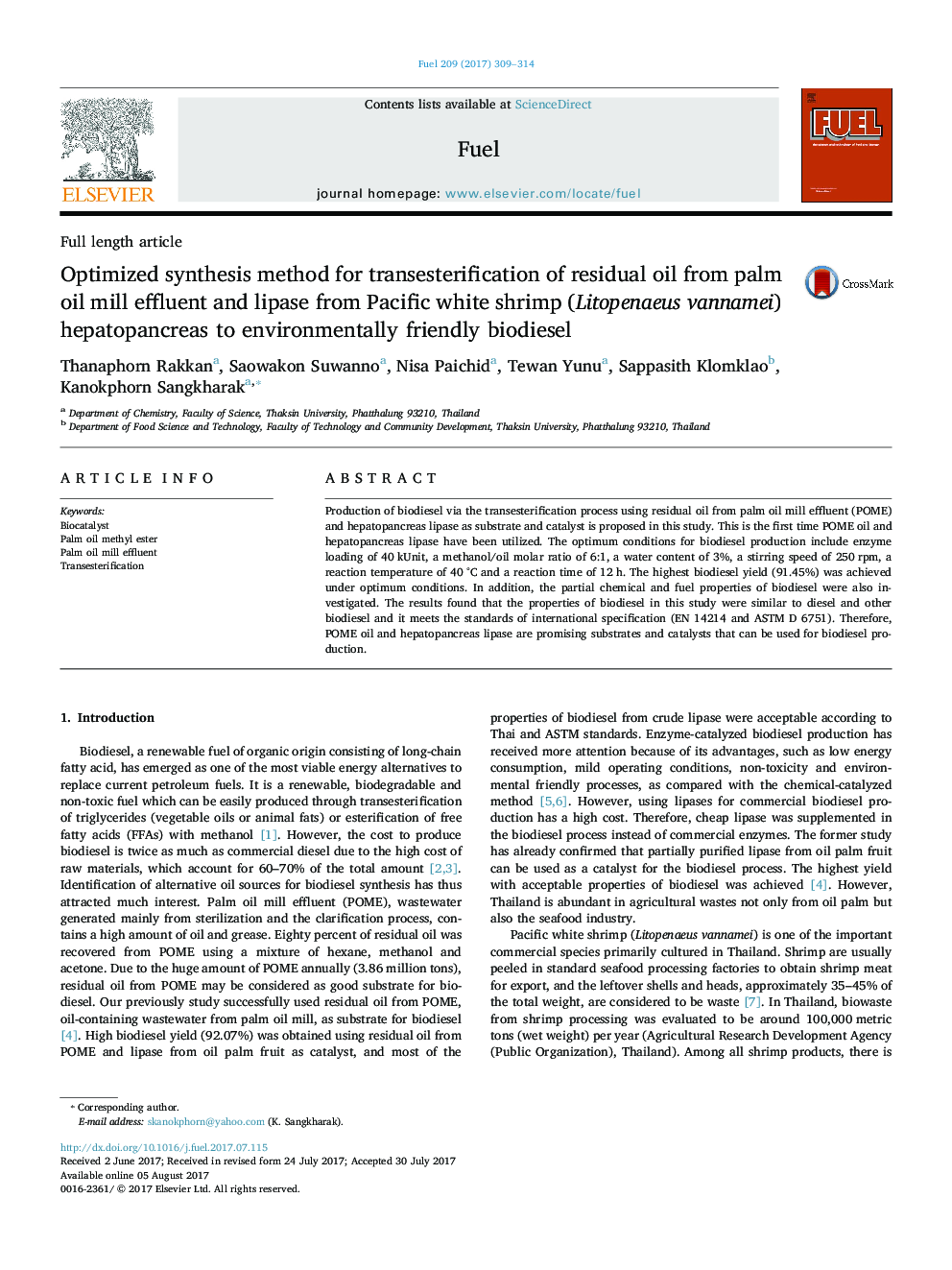| کد مقاله | کد نشریه | سال انتشار | مقاله انگلیسی | نسخه تمام متن |
|---|---|---|---|---|
| 6473884 | 1424955 | 2017 | 6 صفحه PDF | دانلود رایگان |
- POME oil and hepatopancreas lipase was utilized as an alternative substrate and catalyst for biodiesel.
- The optimal operating conditions for biodiesel synthesis were evaluated.
- 91.45% POME biodiesel yield was optimized via transesterification process.
- POME biodiesel satisfied EN 14214 and ASTM D 6751 specification.
Production of biodiesel via the transesterification process using residual oil from palm oil mill effluent (POME) and hepatopancreas lipase as substrate and catalyst is proposed in this study. This is the first time POME oil and hepatopancreas lipase have been utilized. The optimum conditions for biodiesel production include enzyme loading of 40 kUnit, a methanol/oil molar ratio of 6:1, a water content of 3%, a stirring speed of 250 rpm, a reaction temperature of 40 °C and a reaction time of 12 h. The highest biodiesel yield (91.45%) was achieved under optimum conditions. In addition, the partial chemical and fuel properties of biodiesel were also investigated. The results found that the properties of biodiesel in this study were similar to diesel and other biodiesel and it meets the standards of international specification (EN 14214 and ASTM D 6751). Therefore, POME oil and hepatopancreas lipase are promising substrates and catalysts that can be used for biodiesel production.
Journal: Fuel - Volume 209, 1 December 2017, Pages 309-314
